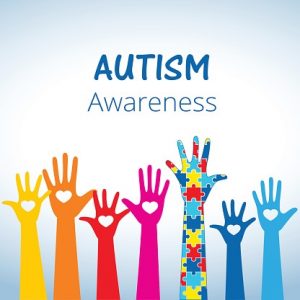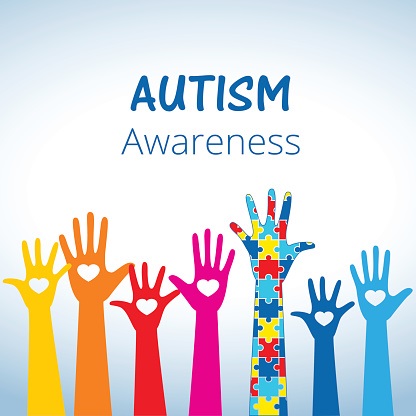 April is Autism Awareness Month. In 2019, more than $1.1 million in grants were provided to organizations in 37 states with the help of the organization, Autism Speaks. The goal? To increase support and services for people with autism. Children within the autism spectrum can have a different rate of developing skills related to communication, social interactions and reasoning. Vision problems are also common in individuals with autism. At Vision for Life, it is our goal to enhance our patient’s quality of life, working directly with them to help improve his or her vision.
April is Autism Awareness Month. In 2019, more than $1.1 million in grants were provided to organizations in 37 states with the help of the organization, Autism Speaks. The goal? To increase support and services for people with autism. Children within the autism spectrum can have a different rate of developing skills related to communication, social interactions and reasoning. Vision problems are also common in individuals with autism. At Vision for Life, it is our goal to enhance our patient’s quality of life, working directly with them to help improve his or her vision.
Vision problems can only be properly examined and diagnosed when the individual undergoes a complete functional and developmental evaluation. Some vision problems can mimic autism-like symptoms in some children. Vision For Life vision therapy can significantly improve symptoms and positively impact your child’s social and communication skills, no matter what the level of autism diagnosed may be.
At Vision For Life, our program can help treat the visual problems that autistic children commonly deal with to include:
- Lack of eye contact
- Difficulty maintaining attention
- Wandering eyes
- Difficulty focusing on an object or obsessive focusing
- Scanning or looking to the side of an object
- Sensitivity to light
- Poor depth perception
- Impulse control
When a child has autism, their motor, cognitive, speech and perceptual abilities can be affected due to an impaired visual processing. Do you notice one or more of the above symptoms in your child? Contact Vision For Life to schedule a functional vision evaluation. Depending on the results of the evaluation, we can decide the route of vision therapy. Lenses may be prescribed to compensate for nearsightedness, farsightedness or astigmatism. Your child’s vision therapy sessions may include non-invasive procedures, such as simple, age-appropriate exercises, designed to enhance his or her brain’s ability to control eye alignment, eye teaming, eye focusing, eye movements and visual processing.
In a functional and developmental evaluation, we will examine the child’s neurological control system and treat his or her entire visual-motor system, altering reflexive behavior, which results in a lasting cure. There are children with autism who may be hypersensitive and visually defensive. At Vision For Life, the therapy sessions are also specifically designed to assist patients so they may gain peripheral stability, improving a patient’s overall happiness and well-being.
If you are interested in learning more about noninvasive, nonsurgical treatments that can help improve your child’s vision, give us a call. Vision For Life has experience evaluating and treating individuals with autism, successfully using vision therapy as a treatment option. Contact us today at 618-288-1489 to discuss treatments and therapies best suited for your loved one.
